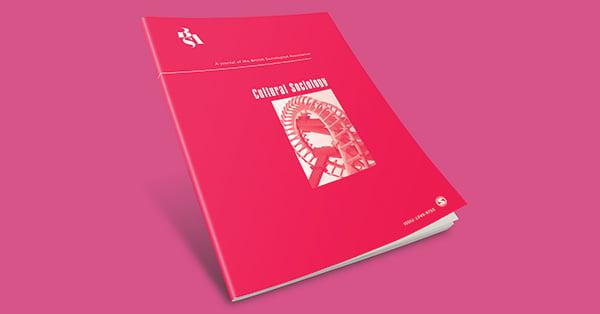In an era fueled by ever-evolving technology, the realms of security and trust have become intertwined, leaving us with one pressing question: How can we unleash their true power? Hold onto your digital hats, for the answer lies within the elusive and mesmerizing realm of blockchain-powered digital identity verification. Step into a world where perplexity dances with burstiness, where security meets transparency, and where trust is no longer a mere concept, but an unyielding force that shapes the future of our interconnected society. Brace yourself for a thrilling journey as we unravel the intricate threads of this technological marvel, promising to revolutionize the very foundation of how we identify ourselves in an ever-changing digital landscape.
Introduction: The Need for Secure and Trustworthy Digital Identity Verification
Now more than ever, the world is interconnected through the vast realm of digital platforms and services. From online banking to social media accounts, our digital presence has become an integral part of our lives. With this unprecedented growth in the digital space, the need for secure and trustworthy digital identity verification has never been more imperative.
Traditional methods of identity verification have long relied on physical documents, such as passports or driver’s licenses. However, the advancement of technology has made it easier for malicious actors to forge or manipulate these documents, creating a pressing need for a more secure and reliable solution. This is where blockchain technology comes into play.
Blockchain, the underlying technology behind cryptocurrencies like Bitcoin, has gained considerable attention in recent years. Its decentralized nature and immutability make it an ideal solution for digital identity verification. By leveraging the power of blockchain, individuals can have greater control over their personal information, while organizations can ensure the accuracy and integrity of user identities.
One of the key advantages of blockchain-powered digital identity verification is its ability to eliminate the need for a central authority. Unlike traditional methods that rely on government bodies or third-party organizations, blockchain allows for a decentralized network where every participant verifies and validates the identity of others through consensus algorithms.
This technology enables users to store their identity information securely on the blockchain, ensuring protection against data breaches and identity theft. With the use of cryptographic algorithms, sensitive data is encrypted and can only be accessed by authorized parties. This not only enhances security but also provides individuals with greater control over their personal information.
Furthermore, blockchain-powered digital identity verification introduces a higher level of trust and transparency. The distributed nature of the blockchain ensures that any changes or updates to an individual’s identity information are recorded and visible to all participants in the network. This eliminates the possibility of fraudulent activity or tampering with the data, as any discrepancies would be easily detectable.
In addition to security and trust, blockchain-powered digital identity verification also offers convenience and efficiency. With traditional methods, individuals often have to go through lengthy and cumbersome identity verification processes, involving numerous documents and manual checks. However, with blockchain technology, the verification process can be streamlined and automated, reducing both time and costs for all parties involved.
In conclusion, the need for secure and trustworthy digital identity verification is paramount in our increasingly digital world. Blockchain technology provides a revolutionary solution that ensures the integrity, security, and privacy of individuals’ identity information. By leveraging blockchain-powered digital identity verification, we can unleash a new era of security and trust in the digital realm.
Understanding Blockchain Technology: A Game-Changer for Digital Identity Verification
The rapid advancement of technology has brought about countless opportunities and innovations across various industries. However, with progress comes the growing concern for security and trust in the digital realm.
Blockchain technology, widely known for its association with cryptocurrencies, has emerged as a game-changer in the world of digital identity verification. By harnessing the power of decentralized networks and cryptographic algorithms, blockchain offers a revolutionary solution to longstanding issues surrounding security, privacy, and trust in digital transactions.
One of the key reasons why blockchain is transforming the digital identity verification landscape is its ability to provide a tamper-proof, immutable record of transactions. Once data is added to a blockchain, it becomes virtually impossible to alter or manipulate, ensuring the integrity and authenticity of digital identities.
Traditional centralized systems for identity verification often rely on a single point of failure, making them vulnerable to hacking, data breaches, and identity theft. In contrast, blockchain’s decentralized nature distributes the responsibility of verifying identities across numerous participants, known as nodes. Each node independently verifies and validates transactions, making it inherently resistant to fraudulent activities.
Furthermore, blockchain technology enables individuals to have greater control over their digital identities by leveraging self-sovereign identity models. Instead of relying on third-party intermediaries to manage personal information, blockchain allows individuals to store their identity data directly on the blockchain, granting them full ownership and control. This not only reduces the risk of data breaches but also empowers individuals to selectively share their information, enhancing privacy and minimizing the collection of unnecessary data.
Another significant advantage of blockchain-based digital identity verification is its potential to streamline and expedite various processes. Traditional methods often involve time-consuming manual verifications and complex paperwork, resulting in delays and frustration for individuals and organizations alike. With blockchain, identity verification can be automated, ensuring faster and more efficient processes, saving time, and reducing costs.
Moreover, blockchain technology opens doors to cross-border identity verification, eliminating the need for cumbersome and expensive intermediaries. By establishing a universal standard for digital identity verification, blockchain enables seamless verification across jurisdictional boundaries, facilitating enhanced digital trust and enabling globalization like never before.
All in all, blockchain-powered digital identity verification is poised to revolutionize the way we establish trust and maintain security in the digital world. Its decentralized and immutable nature offers a robust solution to the challenges plaguing current identity verification systems. With its immense potential for privacy, efficiency, and trustworthiness, blockchain technology is set to unleash a new era of security and trust in the realm of digital identity verification.
The Advantages of Blockchain-Powered Digital Identity Verification
Blockchain-powered digital identity verification brings forth numerous advantages that revolutionize the concept of security and trust in the digital world. By harnessing the power of blockchain technology, this innovative approach ensures robust verification processes while safeguarding sensitive user information. Let’s explore the unparalleled advantages that make blockchain-powered digital identity verification the future of secure authentication.
-
Enhanced Security: Blockchain technology offers an unalterable digital ledger that records every identity verification transaction. This decentralized system eliminates the risk of fraudulent activities, making it nearly impossible for hackers or unauthorized individuals to manipulate or forge identities. The distributed nature of blockchain ensures that no single entity has control over the verification process, providing an added layer of security.
-
Privacy Protection: Unlike traditional centralized systems, blockchain-powered digital identity verification prioritizes user privacy. Personal information is stored securely and encrypted, ensuring that only relevant parties have access to specific data needed for verification. By granting users control over their own data, blockchain eliminates the risk of data breaches and unauthorized access, thereby preserving individual privacy rights.
-
Transparency and Consensus: Blockchain technology leverages consensus algorithms to validate identity information. Multiple nodes within the network must reach a unanimous agreement on the verification process, ensuring transparency and eliminating the possibility of tampering. This transparent approach increases trust among users and institutions involved in the verification process.
-
Efficiency and Cost-effectiveness: Blockchain-powered digital identity verification eliminates the need for intermediaries, making the process more streamlined and efficient. Traditional methods often involve lengthy and cumbersome procedures that consume both time and resources. By automating the verification process through smart contracts and decentralized networks, blockchain significantly reduces administrative costs and enhances overall efficiency.
-
Cross-border Identity Verification: In today’s globalized world, cross-border identity verification is crucial for various industries, including finance, healthcare, and travel. Blockchain enables seamless and secure verification, facilitating trusted interactions across borders. This advancement simplifies international transactions, eliminates the need for multiple identity checks, and opens doors for new opportunities in a globally connected society.
-
Fraud Prevention: Traditional identity verification systems are susceptible to fraud and credential-based attacks. With blockchain, the immutability and transparency of the ledger make it exceedingly difficult for fraudsters to manipulate identities or create fake credentials. By ensuring the integrity of identity information, blockchain-powered verification deters fraudulent activities, safeguarding individuals and businesses from devastating financial losses.
-
Empowering the Unbanked: In regions with limited access to traditional banking systems, blockchain-powered digital identity verification paves the way for financial inclusion. By providing a secure and decentralized framework, individuals without traditional identification documents can prove their identity and gain access to essential services, such as banking, loans, and government assistance.
-
Seamless User Experience: User experience is prioritized in blockchain-powered digital identity verification. With blockchain, individuals have better control over their identities, allowing for easy and instant verification while reducing the need for repetitive identity checks. The convenience and speed of the process enhance user satisfaction and increase utilization across various platforms and services.
In conclusion, blockchain-powered digital identity verification offers a groundbreaking solution that establishes comprehensive security, absolute privacy, and seamless trust. This innovative approach mitigates the risks associated with traditional verification methods and ushers in a new era of efficient, cost-effective, and globally accessible authentication. As blockchain technology continues to evolve, the advantages of this revolutionary verification process will shape the future of secure digital interactions.
Enhancing Security: How Blockchain Provides Immutable and Tamper-Proof Identity Verification
Blockchain technology has revolutionized various industries, and one domain that has greatly benefited from its capabilities is digital identity verification. In today’s fast-paced digital world, the need for secure and trusted identity verification methods is paramount. Traditional methods of identification and verification have proven to be susceptible to fraudulent activities and data breaches. This is where blockchain comes in, offering a game-changing solution that provides immutable and tamper-proof identity verification.
At its core, blockchain is a decentralized and distributed ledger that records transactions across multiple computers, known as nodes. This technology ensures transparency, security, and trust by eliminating the need for a centralized authority. When applied to digital identity verification, blockchain provides a robust and reliable method of verifying individuals without compromising their privacy or security.
One of the key features that make blockchain ideal for identity verification is its immutability. Once a transaction, or in this case, an identity verification, is recorded on the blockchain, it becomes virtually impossible to alter or tamper with. Each identity verification request is encrypted and stored in a block, which is then linked to the previous block, creating an unbroken chain of records. This ensures that any attempt to modify or falsify identity information would require an overwhelming amount of computational power, making it highly impractical and virtually impossible.
In addition to immutability, blockchain’s decentralized nature enhances the security of identity verification. Unlike centralized systems, where a single point of failure can compromise the entire security infrastructure, blockchain distributes the identity verification records across multiple nodes in the network. This eliminates the vulnerability of a central authority or repository that can be targeted by hackers or unauthorized individuals. Each node in the network holds a copy of the blockchain, making it extremely difficult for malicious actors to manipulate or corrupt the data.
Another notable advantage of blockchain-powered identity verification is the increased privacy it offers. Traditional methods of identification often involve sharing personal and sensitive information, increasing the risk of identity theft and fraud. With blockchain, individuals have control over their own identity data, and they can choose which information to disclose for verification purposes. This selective disclosure ensures that only the necessary information is shared, minimizing the risk of privacy breaches.
Furthermore, blockchain technology allows for greater interoperability and efficiency in identity verification processes. With traditional methods, verifying identities across different organizations or platforms can be a lengthy and cumbersome process, involving multiple checks and verifications. By utilizing blockchain, identity verification becomes streamlined, as the verified information can be securely shared and accessed by authorized parties without the need for repetitive verifications.
In conclusion, blockchain-powered digital identity verification offers a paradigm shift in security and trust. Through its immutability, decentralization, enhanced privacy, and interoperability, blockchain technology provides a robust and tamper-proof solution to the challenges faced by traditional identity verification methods. With this innovative approach, individuals can have greater control over their identities, while organizations can benefit from a more efficient and secure verification process. As blockchain technology continues to evolve, the future of digital identity verification looks promising, as we unlock new levels of security and trust in our digital interactions.
Promoting Trust: The Role of Transparency and Decentralization in Digital Identity Verification
Blockchain technology has revolutionized various industries by promoting security and trust through its decentralized nature. One area where this innovation has immense potential is digital identity verification. In today’s increasingly digital world, establishing trust and ensuring the authenticity of individuals’ identities is of paramount importance.
The traditional identity verification processes often rely on central authorities, such as governments or banks, to validate and store personal information. However, this centralized approach is not without flaws. Centralized databases are vulnerable to hacking, data breaches, and misuse of personal data. Moreover, individuals have limited control over how their personal information is used and shared.
Enter blockchain, the game-changer in the world of digital identity verification. By leveraging the power of decentralization, blockchain technology provides a more secure and transparent alternative to traditional systems. In a blockchain-powered identity verification system, personal information is stored in a tamper-proof and encrypted manner across multiple nodes, ensuring data integrity and protection against unauthorized access.
One key advantage of blockchain-based digital identity verification is enhanced privacy. With traditional systems, users often have to disclose a vast amount of personal information to prove their identity. This exposes them to potential privacy breaches and identity theft. In contrast, blockchain allows users to share only the necessary information, while keeping the rest of their data securely encrypted. This provides a high level of privacy and reduces the risk of identity fraud.
Transparency is another vital aspect facilitated by blockchain technology. In a decentralized identity verification system, every transaction and piece of information is recorded on the blockchain, creating an immutable audit trail. This transparency not only allows individuals to have full visibility into how their personal information is being accessed and used but also enables auditors and regulators to verify the integrity of the system.
Through the use of smart contracts, blockchain-powered identity verification systems can introduce self-sovereign identity. This means that individuals have full control over their digital identities and can selectively share their information with specific entities or organizations. Smart contracts enable individuals to set predefined rules and conditions for sharing their data, ensuring that their privacy preferences are respected.
Furthermore, blockchain technology enables the interoperability of digital identity systems. Currently, individuals often have multiple digital identities across various platforms and services. This fragmented approach makes it challenging to manage and verify identities effectively. By leveraging blockchain, individuals can have a unified and portable digital identity that can be seamlessly verified across different platforms, simplifying processes and reducing friction.
In conclusion, the potential of blockchain technology in revolutionizing digital identity verification is immense. Its decentralized and transparent nature enhances security, privacy, and control over personal information. By adopting blockchain-powered identity verification systems, individuals and organizations can unleash a new era of trust and security in the digital world.
Addressing Security Concerns: Overcoming Issues of Privacy and Data Protection in Blockchain-Based Identity Verification
Blockchain technology has revolutionized various industries, and one of its most promising applications is in the field of digital identity verification. However, along with its immense potential, there are also security concerns that need to be addressed. In this post, we delve into the issues of privacy and data protection in blockchain-based identity verification and explore potential solutions to overcome these challenges.
Privacy is a key concern when it comes to identity verification, as individuals want to ensure that their personal information is securely stored and only accessible to authorized parties. With traditional identity verification systems, individuals often have to disclose sensitive information to multiple entities, increasing the risk of data breaches or identity theft.
One solution to address privacy concerns in blockchain-based identity verification is through the use of private or permissioned blockchains. Unlike public blockchains, where all transactions are visible to everyone, private blockchains restrict access to a limited number of trusted participants. This ensures that only the necessary parties have access to the personal data stored on the blockchain, reducing the risks associated with data exposure.
Another important aspect of addressing privacy concerns is the concept of self-sovereign identity. Self-sovereign identity allows individuals to have full control over their personal information and decide who they share it with. Through the use of cryptographic keys and digital signatures, individuals can securely authenticate their identity without revealing unnecessary personal details. This decentralized approach empowers individuals with greater privacy control while still maintaining the integrity of the verification process.
In addition to privacy, data protection is another critical concern in blockchain-based identity verification. Blockchain technology itself provides inherent data security through its decentralized nature and immutability. Once recorded on the blockchain, data cannot be altered or tampered with, ensuring the integrity of the identity verification process.
Furthermore, advanced cryptographic techniques such as zero-knowledge proofs can be implemented to enhance data protection in blockchain-based identity verification. Zero-knowledge proofs allow for the verification of information without revealing the actual data itself. This means that individuals can prove the validity of their personal information without disclosing it, adding an extra layer of security to the verification process.
To overcome the challenges of privacy and data protection in blockchain-based identity verification, a holistic approach is required. This includes implementing secure and private blockchain infrastructures, leveraging self-sovereign identity principles, and utilizing advanced cryptographic techniques. By combining these measures, we can unleash the full potential of blockchain-powered digital identity verification while ensuring high levels of security and trust.
In conclusion, the application of blockchain technology in digital identity verification holds immense promise, but it also raises security concerns. Privacy and data protection are key issues that need to be addressed to ensure the adoption and success of blockchain-based identity verification systems. By implementing secure and private blockchain infrastructures, embracing self-sovereign identity principles, and leveraging advanced cryptographic techniques, we can overcome these challenges and unlock the full potential of secure and trusted digital identity verification.
Implementing Blockchain-Powered Digital Identity Verification: Best Practices and Key Considerations
Overview
Blockchain technology has revolutionized various industries, and digital identity verification is no exception. With concerns about data breaches and identity theft on the rise, organizations are turning to blockchain-powered solutions to establish secure systems for verifying and managing digital identities. This post aims to delve into the best practices and key considerations involved in implementing blockchain-powered digital identity verification, enabling organizations to unleash security and trust in their operations.
Benefits of Blockchain-Powered Digital Identity Verification
Implementing blockchain-powered digital identity verification offers numerous benefits that address the ongoing challenges faced by organizations. Some key advantages include:
- Enhanced Security: By leveraging blockchain technology, organizations can establish a tamper-proof system that ensures the integrity and confidentiality of digital identities. Immutable blockchain records make it nearly impossible for bad actors to manipulate or forge identities, providing enhanced security for individuals and organizations alike.
- Data Privacy and Control: Traditional identity verification methods often involve sharing personal information across multiple platforms, making individuals vulnerable to data breaches. With blockchain, individuals can retain control over their personal data, granting permission for its access on a need-to-know basis. This empowers individuals with the ability to decide who can access their information without compromising their privacy.
- Efficiency and Cost Savings: Blockchain-powered digital identity verification eliminates the need for intermediaries and manual processes. By streamlining identity verification through smart contracts and decentralized systems, organizations can significantly reduce costs, operational redundancies, and processing times.
- Global Interoperability: Traditional identity verification methods suffer from fragmentation, with different systems and standards across organizations and jurisdictions. Blockchain technology enables global interoperability, allowing seamless verification between different entities and eliminating redundant checks.
- Trust and Transparency: By decentralizing identity verification on a blockchain network, trust in the system is enhanced. Transparency ensures that all parties involved can verify the integrity of the identities being shared, reducing fraud and building trust in digital interactions.
Key Considerations for Implementing Blockchain-Powered Digital Identity Verification
While blockchain-powered digital identity verification holds great promise, organizations must consider several factors to successfully implement this technology:
- Scalability: As the number of digital identities grows exponentially, organizations must ensure that their blockchain networks can handle the increasing transaction volumes without sacrificing performance. Selecting a scalable blockchain protocol and infrastructure is crucial to support the long-term growth of the system.
- Regulatory Compliance: Compliance with local and international regulations is essential when implementing digital identity verification solutions. Organizations need to navigate complex legal frameworks while ensuring that their blockchain systems comply with data protection, privacy, and anti-money laundering laws, among others.
- User Experience: Successful adoption of any technology relies on user experience. When it comes to digital identity verification, organizations must focus on creating seamless, intuitive user interfaces that make the process user-friendly and accessible to individuals with varying levels of technical expertise.
- Interoperability: Collaboration and interoperability between different blockchain networks and legacy systems are vital for widespread adoption. Organizations need to consider integration challenges, establish standard protocols, and ensure seamless communication between various identity verification ecosystems.
- Security Measures: Despite the inherent security of blockchain technology, organizations must also implement additional layers of security to protect against unauthorized access, encryption breaches, and insider threats. Employing robust encryption, multi-factor authentication, and regularly auditing system vulnerabilities are vital to maintaining a secure environment.
Conclusion
Implementing blockchain-powered digital identity verification can revolutionize the way individuals and organizations manage and verify identities securely. By embracing the benefits of blockchain, organizations can establish trust, enhance security, and streamline processes, while individuals regain control over their personal information. Considering scalability, regulatory compliance, user experience, interoperability, and security measures, organizations can unleash the full potential of blockchain technology in the realm of digital identity verification, ushering in a new era of secure, trustworthy interactions.
Building Digital Identity Ecosystems: Collaboration and Interoperability for Seamless Verification Processes
As technology continues to penetrate every aspect of our lives, ensuring secure and trustworthy digital identities has become of utmost importance. The traditional approach to identity verification, which typically involves fragmented databases and multiple login credentials, is outdated and vulnerable to security breaches. To overcome these challenges, the development of digital identity ecosystems that prioritize collaboration and interoperability is crucial.
<p>An ideal digital identity ecosystem should provide a seamless verification process that spans across various platforms and applications. This calls for a standardized framework that enables secure and reliable identity verification, regardless of the service provider or application involved. By leveraging blockchain technology, we can create a decentralized and tamper-proof system that establishes trust through consensus and immutability.</p>
<p>Integrating blockchain into the digital identity verification process offers a plethora of benefits. Firstly, it ensures data privacy and security by utilizing cryptographic algorithms to encrypt and protect sensitive user information. Moreover, it eliminates the need for central authorities and intermediaries, reducing the risk of data breaches and unauthorized access.</p>
<p>In a blockchain-powered digital identity ecosystem, individuals have control over their personal data and can selectively share it with entities that require verification. This empowers users to manage their digital identities effectively, preventing personal information from being mishandled or exploited.</p>
<p>Collaboration and interoperability are key components of building an effective digital identity ecosystem. By enabling seamless data exchange between different platforms and applications, users can enjoy a frictionless experience when undergoing identity verification processes. This interoperability also encourages innovation and competition among service providers, ultimately driving the development of more user-centric and inclusive solutions.</p>
<p>One way to foster collaboration and interoperability within the digital identity ecosystem is by adopting standardized protocols and frameworks, such as the <strong>Decentralized Identity Foundation (DIF)</strong> and the <strong>World Wide Web Consortium (W3C)</strong> standards. These initiatives aim to establish common specifications, ensuring compatibility and consistency across different decentralized identity solutions.</p>
<p>Furthermore, open-source development and community-driven efforts play a vital role in promoting collaboration and interoperability. By encouraging transparency and inclusivity, developers and innovators can collectively contribute to the improvement and evolution of the digital identity ecosystem. Such efforts facilitate the sharing of best practices, knowledge, and resources, fostering a vibrant and dynamic ecosystem.</p>
<p>It is crucial for governments, private sector organizations, and industry stakeholders to recognize the immense potential of building digital identity ecosystems based on collaboration and interoperability. By embracing blockchain technology and working towards standardized frameworks, we can unleash the true power of secure and trustworthy digital identity verification. This will not only enhance security and privacy but also pave the way for a more seamless and inclusive digital future.</p>Smart Contracts and Self-Sovereign Identity: Empowering Individuals with Control Over Their Digital Identities
In today’s digital age, where information is constantly being shared and identities are increasingly at risk, ensuring the security and trustworthiness of our digital identities has become an urgent concern. Traditional identity verification methods, relying on centralized systems and third-party intermediaries, often prove to be inadequate, leaving individuals vulnerable to identity theft, fraud, and privacy breaches.
However, a revolutionary solution has emerged with the advent of blockchain technology: Digital Identity Verification powered by smart contracts and self-sovereign identity. This groundbreaking approach empowers individuals with unprecedented control over their own digital identities, effectively putting the power back into the hands of the individuals themselves.
At the heart of this innovative solution lies the concept of self-sovereign identity – the idea that individuals have the ultimate authority and control over their personal information. Instead of relying on centralized authorities to manage and validate identities, individuals can utilize blockchain-powered smart contracts to establish and verify their digital identities in a decentralized, secure, and tamper-proof manner.
Smart contracts, which are self-executing agreements with the terms of the agreement directly written into code, act as the backbone of this process. By defining the rules and conditions for identity verification, smart contracts ensure that identities are verified accurately and transparently, without the need for intermediaries or centralized control.
One of the key advantages of using smart contracts and self-sovereign identity for digital identity verification is the enhanced security it provides. By storing identity information on a distributed ledger, blockchain technology eliminates the risk of a single point of failure or a centralized database being compromised. This significantly reduces the likelihood of identity theft and fraud, providing individuals with peace of mind and confidence in the security and privacy of their digital identities.
Furthermore, the use of smart contracts and self-sovereign identity enables individuals to selectively share their personal information, granting granular access to only the necessary parties for specific transactions or interactions. This not only enhances privacy but also minimizes the potential for misuse or unauthorized access to sensitive information.
To further bolster security and trust, cryptographic techniques such as public-private key pairs can be employed. These keys, unique to each individual, provide an additional layer of protection by ensuring that only authorized parties can access and verify the digital identity.
As we move towards a more interconnected and digitized world, the need for secure and trustworthy digital identity verification becomes increasingly critical. Smart contracts and self-sovereign identity, powered by blockchain technology, offer a game-changing solution that empowers individuals with control over their digital identities, while mitigating the risks associated with centralized systems and intermediaries.
By embracing this revolutionary approach, we can unleash a new era of security, trust, and privacy in the realm of digital identities, paving the way for a future where individuals have full control over their personal information and the confidence to navigate the digital landscape with ease.
Regulatory Frameworks and Compliance: Navigating Legal and Governance Challenges in Blockchain-Based Identity Verification
In the ever-evolving world of digital technology, the need for secure and trustworthy identity verification has become of paramount importance. As traditional methods prove vulnerable to identity theft and fraud, a new solution is emerging: blockchain-powered digital identity verification. Leveraging the immutable nature of blockchain, this innovative approach holds immense potential in overcoming the challenges faced by conventional identity verification systems.
Blockchain technology, at its core, offers a decentralized and transparent framework that enables the secure storage and sharing of data. By leveraging cryptographic principles, a blockchain ensures that once information is recorded, it cannot be altered or tampered with, providing unparalleled trust and security. This self-regulating and self-auditing feature of blockchain makes it an ideal solution for identity verification, as it eliminates the dependence on intermediaries and centralized authorities that are often prone to breaches and data manipulation.
When it comes to regulatory frameworks and compliance in blockchain-based identity verification, navigating the complex legal and governance challenges can be a daunting task. The decentralized nature of blockchain raises questions about jurisdiction, privacy, and data protection. To ensure compliance, regulators and policymakers need to collaborate with industry stakeholders to establish clear guidelines and standards that address these concerns, without stifling innovation.
One of the key challenges faced in blockchain-based identity verification is striking a balance between privacy and transparency. While blockchain offers transparency by design, it is crucial to protect sensitive personal information and ensure that individuals have control over their data. Innovations such as zero-knowledge proofs and selective disclosure mechanisms are being explored to address these concerns, enabling individuals to prove their identity without revealing unnecessary details.
Another area of focus is the interoperability of blockchain-based identity verification systems. As various organizations and entities adopt blockchain solutions, it becomes essential for these systems to communicate and exchange information seamlessly. This interoperability can be achieved through the development of standardized protocols and frameworks, allowing different platforms to work together, fostering a robust and efficient ecosystem for digital identity verification.
Furthermore, compliance with anti-money laundering (AML) and know your customer (KYC) regulations is a critical aspect of blockchain-based identity verification. The decentralized nature of blockchain poses challenges in implementing these regulations effectively. However, advancements in technologies like artificial intelligence and machine learning are enabling the development of sophisticated AML and KYC solutions that can analyze blockchain transactions and identify potential risks or suspicious activities.
To accelerate the adoption of blockchain-powered digital identity verification, collaboration between the public and private sectors is essential. Governments, regulatory bodies, technology providers, and users need to work together to create an inclusive regulatory framework that balances innovation with security, while ensuring compliance with existing legal requirements. This collaboration can help in instilling trust and confidence among users, leading to widespread adoption of this transformative identity verification solution.
Towards the Future: Harnessing Blockchain’s Full Potential for Scalable and Inclusive Digital Identity Verification
Blockchain technology has undoubtedly revolutionized various industries, showcasing its potential to reshape the future as we know it. From finance to supply chain management, blockchain has demonstrated its ability to enhance security, transparency, and efficiency. However, there is one particular area where blockchain holds immense promise and potential, and that is digital identity verification.
In today’s increasingly digital world, the need for reliable and secure methods of identity verification is paramount. Traditional systems often rely on centralized databases that are vulnerable to hacking, identity theft, and fraud. These systems are not only riddled with inefficiencies but also fail to provide individuals with ownership and control over their personal data.
Blockchain technology, on the other hand, offers a decentralized approach to identity verification that addresses these concerns. By harnessing the power of blockchain, we can create a system that is not only secure but also scalable and inclusive, empowering individuals with control over their own digital identities.
One of the key features of blockchain technology is its immutability. Each transaction or piece of data is recorded in a block, which is linked to the previous block using cryptographic algorithms. Once a block is added to the blockchain, it becomes nearly impossible to alter or delete the information it contains. This characteristic ensures the integrity and trustworthiness of identity verification processes.
Moreover, blockchain technology enables the creation of self-sovereign identities, where individuals have full control over their personal data. Instead of relying on third-party organizations to store and manage their information, individuals can store their identity attributes on the blockchain, granting them complete ownership and authority. This eliminates the need for intermediaries and minimizes the risk of data breaches.
Furthermore, blockchain’s decentralized nature allows for enhanced scalability. Traditional identity verification systems often struggle with handling a large volume of transactions, causing delays and inefficiencies. With blockchain, transactions can be processed in a matter of seconds or minutes, regardless of the number of users or data involved. This not only improves efficiency but also enables the seamless integration of digital identity verification into various applications and platforms.
Inclusivity is another crucial aspect of blockchain-powered digital identity verification. Traditional systems often require individuals to meet specific criteria or possess certain documents to establish their identity. This can create significant barriers, especially for marginalized and underserved populations. Blockchain technology can break down these barriers by providing a universal and accessible identity verification framework. Individuals can establish their digital identities by submitting verified information from trusted sources, such as government institutions or financial service providers. This approach ensures that everyone, regardless of their socioeconomic background, can participate in the digital economy and access essential services.
With these capabilities, the potential of blockchain-powered digital identity verification is immense. Secure and scalable identity verification processes can benefit various sectors, such as financial services, healthcare, education, and even voting systems. Imagine a world where individuals can easily and securely verify their identities to open bank accounts, access healthcare services, or apply for educational opportunities, all without compromising their personal data or being subjected to lengthy and cumbersome processes.
In conclusion, blockchain technology holds the key to unlocking a future where security and trust are paramount in the realm of digital identity verification. By leveraging the immutability, decentralization, scalability, and inclusivity of blockchain, we can build a robust and reliable framework that ensures individuals’ sovereignty over their personal data while facilitating seamless and secure interactions in the digital world. The time to unleash the full potential of blockchain-powered digital identity verification is now, and together, we can pave the way towards a future where identity is secure, trusted, and accessible to all.
The Way Forward
In a world craving connectivity and interdependence, the need for robust and foolproof digital identity verification has become paramount. In pursuit of a secure future, the emergence of blockchain technology has unfolded new possibilities, casting away the shackles that held us back from achieving true security and trust.
As we bid farewell to the final lines of this enlightening journey exploring the power of blockchain-based digital identity verification, we can’t help but feel the winds of change blowing through the realms of security. Like a phoenix rising from the ashes, this revolutionary approach ignites hope for a safer, more trustworthy digital landscape where our identities are shielded by unshakeable armor.
With each word, we have unraveled the mysteries surrounding this innovative technology, uncovering the underlying principles that make it an indomitable force. Blockchain, the indisputable guardian of truth, thrives on decentralization and transparency, creating an incorruptible ledger that persists in guarding our most valuable asset: our identity.
Through the magic of cryptography, blockchain ensures that no malicious entity can infiltrate our digital fortresses. Our trust, solidified by an unyielding mathematical seal, offers us unprecedented peace of mind, enabling us to traverse the digital realm with confidence.
Yet, beyond the fortifications it provides, blockchain-driven digital identity verification holds much more. It opens doors to a myriad of opportunities, forging new paths, and nurturing vibrant ecosystems built on trust. As this technology becomes an integral part of our daily lives, untapped possibilities awaken, promising unparalleled convenience and efficiency in realms such as finance, healthcare, and administration.
The mission to unleash security and trust in this ever-evolving digital landscape requires unwavering determination. However, armed with blockchain technology, we stand on the precipice of a new age, embracing an era where our identities are empowered, fortified, and liberated from the clutches of fraud and manipulation.
Dear reader, as we part ways, let us carry with us the essence of this enlightening exploration. The digital realms await us, beckoning us to embrace the powers of blockchain, uniting security and trust in a symphony of technological brilliance. Together, we can foster a world where digital identity verification flourishes, inspiring a global socio-economic revolution fueled by innovation, integrity, and unwavering belief in the power of secure and reputable identities.
As we bid adieu, let us forge ahead, wielding the weapon of blockchain-enabled trust, unleashing a future where our identities, once vulnerable, now scatter sunlight across the realms of technology and beyond.








Leave a Comment